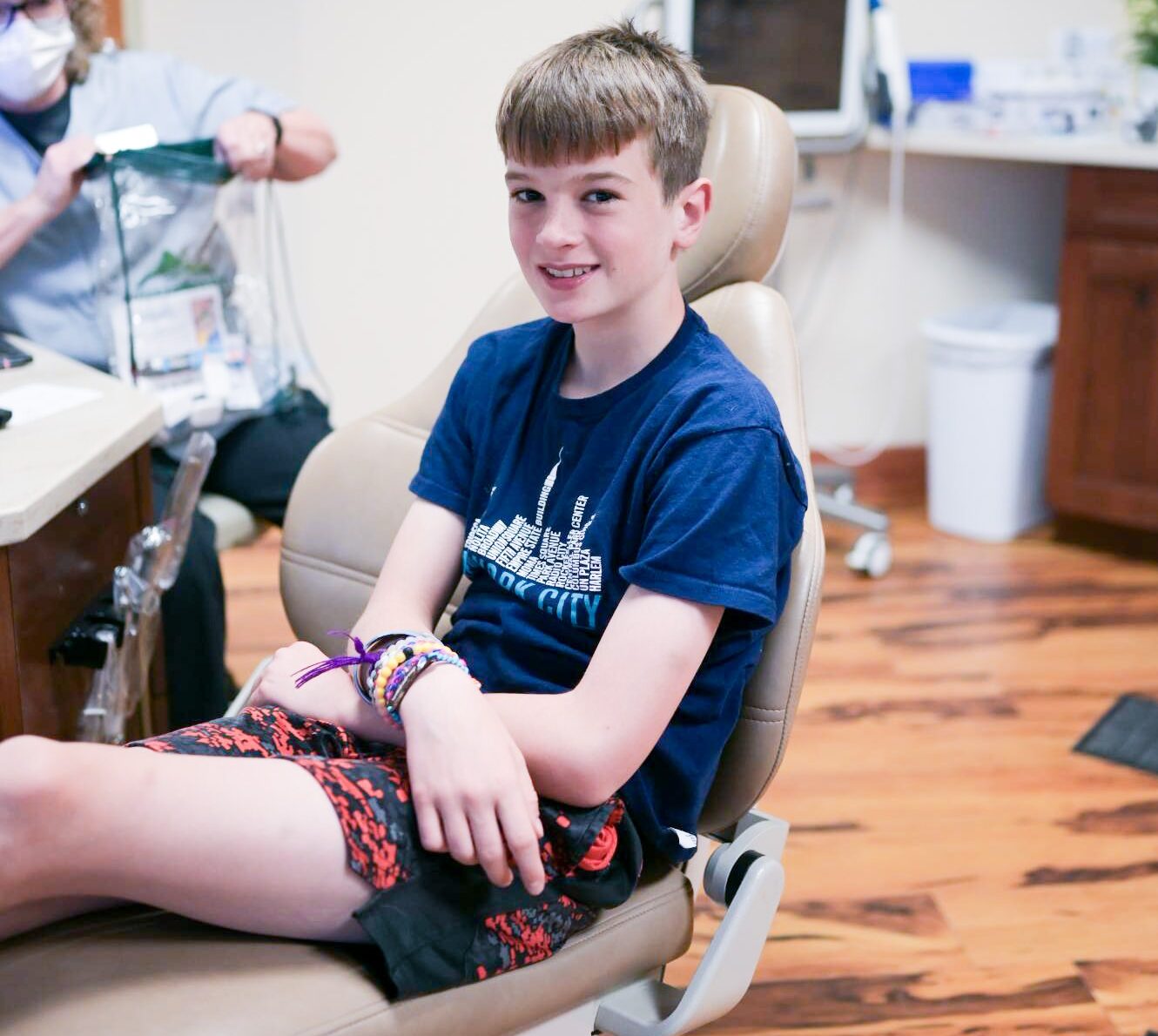As a parent, nothing beats seeing your child smile brightly and confidently; we can help you achieve that at Timock Family Orthodontics and Northern Colorado Orthodontics. Guiding their teeth and jaw development during these early stages can be both exciting and intimidating, with one of the most common questions being, “Does my child need to see an orthodontist?”
Aside from giving Northern Colorado something to smile about, we’ll also walk you through a couple of telltale signs that it’s time to bring your little ones for a visit.
When Should You Bring Your Kid to the Orthodontist?
There are a couple of factors to consider before bringing your child to the orthodontist. After all, everyone would want two things: making each visit count, and avoiding being too late for an ortho appointment.
Drop by our offices in Fort Collins and Windsor if your child meets any of the following criteria.
Your Child is Around Seven Years Old
The American Association of Orthodontists advises an early childhood orthodontic evaluation for kids aged seven to eight. This is the period closely following the years of rapid development, often pegged at five to six years old. Among the changes are in the development of their teeth and jaws.
By seven, most kids still develop jaw structures and baby teeth — making it an ideal time to check for signs of potential orthodontic issues.
Still, this is not an ironclad rule and more of a recommendation from the AAO. There are still a couple of other factors you need to check.
Developmental Issues Start Popping Up
There are a couple of visible factors that indicate there might be something wrong with your child’s teeth or jaws. Below are three developmental issues that warrant an appointment with an orthodontist, even if they’re not yet seven years old.
- Misaligned or Crowded Teeth:
Alignment and spacing are fairly easy to spot. Check your kid’s teeth for crowding (the teeth are too packed together) or diastema (excessive gaps between teeth). Crooked teeth are also a cause for concern.
Issues with your teeth’s position can lead to a couple of complications, from negatively affecting your kid’s face shape to painful impacted teeth — all of which would require costly corrective procedures down the line.
- Incorrect Bite:
The correct bite isn’t easily distinguishable, especially for people outside dental and orthodontic jobs. You can check this from a couple of different angles. From the front view, the edges of your kid’s upper teeth parallel to the top of his or her lower lip.
Looking at the side view, the pointed edges of the top row should sit perfectly between two teeth in the bottom row. Aside from these qualities, clear indications of an overbite, underbite, or even a crossbite are enough to require an orthodontic intervention.
- Difficulty Chewing or Biting:
Watching your kids eat is a fun and relaxing activity, but can also tell you if something’s wrong with their oral health. It’s good if they tell you of continuous or recurring pain. If not, see if they wince or flinch when they eat or drink something.
By capturing these issues early, you can trust Timock Family Orthodontic to set them back on track so they’ll grow healthy and confident.
Your Kids Exhibit Certain Behaviors
Early childhood is a stage of exploration and learning. Unfortunately, some of these habits signal something wrong about their health and could lead to complications growing up. Some of the habits include:
- Thumb Sucking
Kids usually pick up thumb-sucking habits to satisfy their natural rooting and sucking reflexes. Sometimes, it persists into early childhood, at which point their thumb can push teeth out of place. Aside from exercises, Dr. Adam Timock or Dr. Jill Mioduski can recommend a dental appliance to protect teeth as your kid eventually outgrows this habit.
- Tongue Thrusting
This happens when your kid’s tongue presses too far in the mouth, often an acquired habit that applies excessive pressure to the teeth. Similar to thumb sucking, tongue thrusting can push your teeth out of place. Even worse, it can lead to other orthodontic problems like bite problems or speech impediments.
- Mouth Breathing
Check if your kids breathe through their mouths regularly. Doing this during sleep dries out their mouths, exposing their teeth and gums to bacteria and causing bad breath. Depending on the severity of the case, we can recommend a variety of orthodontic treatments to correct this structural issue.
Benefits of Early Orthodontic Intervention
By setting an early orthodontic appointment for your child, not only do you detect immediate problems, but you also save them from a lot of trouble down the line. At this stage, most orthodontic problems can be corrected easily because instead of correcting something that went wrong, we simply guide your child’s developmental process to prevent problems.
Aside from ensuring health and confidence for your child, capturing and correcting their impending orthodontic problems also reap benefits for the parents. Imagine the savings from complex corrective procedures, not to mention other treatments your child might need, such as speech impediments or facial deformities.

Give Them a Smile They Can Grow With
Childhood is such a precious time as your little ones build memories and learn a lot of things. As parents, we understand your desire to equip them with the best of everything —- including their smiles.
Even without a major treatment, exposing your child to orthodontic appointments will greatly help them take a more active role in their oral health. If you’re ready to give the gift of a better, healthier smile, schedule your free initial consultation today.
